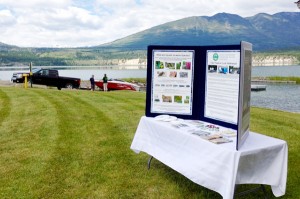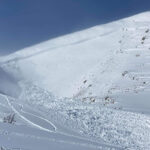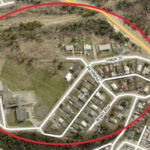Home »

Dangerous aquatic hitchhikers

The pristine lakes, rivers and wetlands of the East Kootenay play a vital role in our identity. The wellbeing of our people is closely tied to the health of our natural environment. We depend on it, and it depends on us.
However, an alien invader is poised, waiting for an opportunity to attack our waters. The social, financial and environmental costs of this opportunistic organism can be catastrophic.
This insidious organism is the invasive aquatic zebra mussel.

In Okanagan Lake alone, experts have made a conservative estimate of $45 million per year in damage to infrastructure, loss in property values, and damage to the native species if the lake were to be infested, according to Gerry Zimmermann, Kelowna’s council’s representative on the water board.
This mussel was first discovered in North America in 1988 in Lake St. Clair in the Great Lakes system.
It is believed that the larvae were transported in the ballast water of a cargo ship from Europe. It quickly spread throughout the system and to many other Eastern Lakes. Despite a great joint effort to contain them to the East, by 2007 they had spread to Lake Mead in Nevada and then to many lakes in the Southeastern US. Mussels are spread primarily by boaters moving from infested lakes to non-infested without properly cleaning, draining and drying their boats and equipment.

The East Kootenay Invasive Plant Council (EKIPC) has been proactively working with many organizations in Canada and the US to prevent this devastation. The strength of these partnerships, and the quick action taken in response to threats of invasive mussel introduction has averted many close calls in B.C.
Our lakes and waterways do not have to succumb to this intrusion. It will take a concentrated effort, but EKIPC is committed to this cause and is confident that if we all work together, effective preventative measures can be achieved. We will save millions of dollars, avoid extensive environmental damage, and preserve the natural beauty and resources of the Kootenays for generations to come.

EKIPC is asking boaters to commit to following the Clean, Drain, Dry principles of as soon their boat or watercraft is removed from the water:
Clean the hull of all boats and watercraft as well as any areas of standing water inside the vessel. Remove any visible material on the boat and trailers including weed segments;
Drain the lower portion of the motor. Empty bilge;
Dry the boat by leaving out of the water for one week before entering another water body.
Together we can stop that boat.
Clean, Drain, and Dry!
For more information visit www.ekipc.com.
Lead image: Weed Walk and Pull earlier this year. Student Allie Waite, EKIPC Program Manager Todd Larsen, East Kootenay MLA Bill Bennett, Pam Turyk, Chair of EKIPC board.
Submitted







